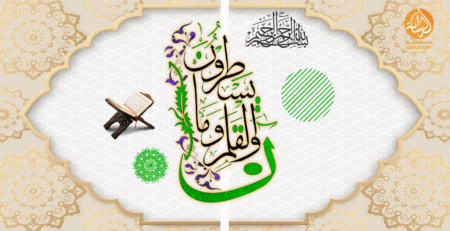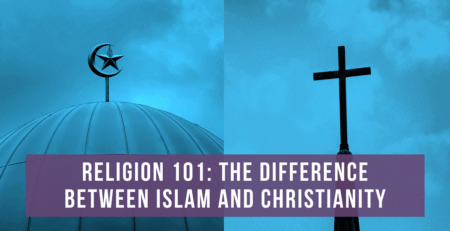| Introduction to the Five Pillars of Islam | The Five Pillars of Islam form the foundation of Muslim life, providing a framework for spiritual and ethical practices. These pillars serve as a guide for Muslims worldwide, shaping their beliefs, actions, and interactions within their communities. Understanding these pillars is essential to grasp the core principles of Islam and the responsibilities expected of its followers. |
| Shahada: Declaration of Faith | Meaning and significance The Shahada, or the declaration of faith, is the first pillar of Islam. It entails the simple yet profound statement, “There is no god but Allah, and Muhammad is His messenger.” This declaration affirms the oneness of Allah and the prophethood of Muhammad, serving as the foundation of Islamic belief. |
| Importance in Islam The Shahada holds immense significance in Islam as it signifies one’s entry into the faith and commitment to its principles. It serves as a constant reminder of the fundamental beliefs of Islam and the unity of the Muslim community worldwide. |
| Salah: Ritual Prayer | Definition and purpose Salah, or ritual prayer, is the second pillar of Islam. It is a ritual act of worship performed five times a day to establish a direct connection with Allah. Salah serves as a means of spiritual purification, mindfulness, and seeking guidance from the Almighty. |
| Times and frequency of Salah Muslims are required to perform Salah at specific times throughout the day: Fajr (dawn), Dhuhr (noon), Asr (afternoon), Maghrib (evening), and Isha (night). The frequency of Salah underscores the importance of maintaining a constant connection with Allah and seeking His guidance in all aspects of life. |
| Rituals and significance Salah involves specific rituals, including ablution (wudu), facing the Kaaba in Mecca, and reciting verses from the Quran. Each prayer session serves as an opportunity for Muslims to express gratitude, seek forgiveness, and reaffirm their faith in Allah. |
| Zakat: Almsgiving | Definition and purpose Zakat, or almsgiving, is the third pillar of Islam, emphasizing the importance of charity and social responsibility. It involves giving a portion of one’s wealth to those in need, thereby purifying one’s wealth and supporting the less fortunate members of society. |
| Obligations and benefits Muslims who meet specific criteria are obligated to pay Zakat annually, typically calculated as a percentage of their wealth or assets. Beyond fulfilling a religious duty, Zakat fosters solidarity within the Muslim community and alleviates poverty by redistributing wealth equitably. |
| Impact on the community Zakat plays a crucial role in addressing socio-economic disparities and providing essential support to vulnerable individuals and families. It promotes compassion, empathy, and social justice, reflecting the core values of Islam in action. |
| Sawm: Fasting during Ramadan | Significance of Ramadan Sawm, or fasting during the month of Ramadan, is the fourth pillar of Islam and holds immense spiritual significance. Ramadan is the ninth month of the Islamic lunar calendar, commemorating the revelation of the Quran to Prophet Muhammad. |
| Purpose and benefits of fasting Fasting during Ramadan serves multiple purposes, including spiritual purification, self-discipline, and empathy for the less fortunate. It involves abstaining from food, drink, and other physical needs from dawn until sunset, fostering a deeper connection with Allah and promoting self-reflection. |
| Practices during Ramadan Beyond abstaining from food and drink, Muslims engage in increased prayer, recitation of the Quran, and acts of charity during Ramadan. The month culminates in Eid al-Fitr, a joyous celebration marking the end of fasting and the beginning of Shawwal, the following month in the Islamic calendar. |
| Hajj: Pilgrimage to Mecca | Importance and significance Hajj, the pilgrimage to Mecca, is the fifth pillar of Islam and represents the culmination of a Muslim’s spiritual journey. It is an obligation for every physically and financially capable Muslim to perform Hajj at least once in their lifetime. |
| Rituals and stages of Hajj The Hajj pilgrimage involves a series of rituals, including circumambulating the Kaaba, performing symbolic stoning of the devil, and standing vigil on the plains of Arafat. These rituals symbolize the unity of the Muslim ummah (community) and commemorate the actions of Prophet Ibrahim and his family. |
| Spiritual significance Hajj is a deeply spiritual experience that fosters humility, piety, and submission to the will of Allah. It transcends geographical boundaries and cultural differences, uniting millions of Muslims from diverse backgrounds in a common act of worship and devotion. |
| Conclusion | The Five Pillars of Islam serve as the cornerstone of Muslim life, embodying the core principles of faith, worship, charity, fasting, and pilgrimage. These pillars provide a roadmap for spiritual growth, moral conduct, and social responsibility, guiding Muslims on their journey towards closeness to Allah and righteousness in their actions. By adhering to these pillars, Muslims uphold the tenets of their faith and contribute to the betterment of society as a whole. |
| FAQs (Frequently Asked Questions) | 1. What is the significance of the Five Pillars of Islam? |
| The Five Pillars of Islam represent the essential beliefs and practices that form the foundation of Muslim life. They serve as a guide for spiritual growth, moral conduct, and social responsibility, shaping the lives of Muslims worldwide. |
| 2. Are the Five Pillars of Islam mandatory for all Muslims? |
| Yes, the Five Pillars of Islam are obligatory for all practicing Muslims. They represent the basic framework of Islamic faith and practice, with each pillar carrying its own significance and obligations. |
| 3. Can non-Muslims participate in the Five Pillars of Islam? |
| While non-Muslims are not required to observe the Five Pillars of Islam, they are welcome to learn about and participate in certain aspects, such as charitable giving or fasting during Ramadan, if they choose to do so respectfully. |










Leave a Reply